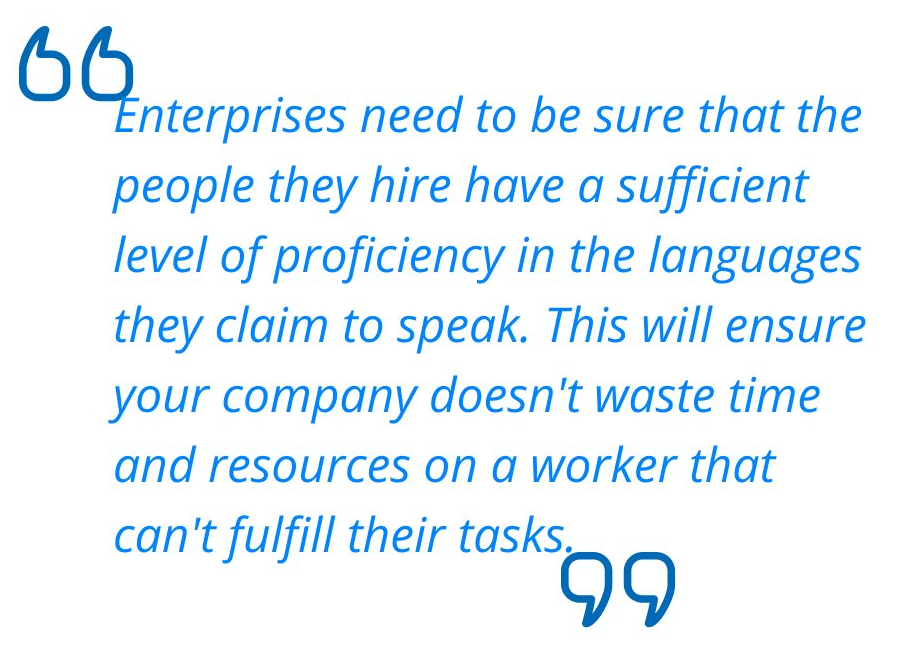A workforce that has language proficiency is an invaluable resource a business can use to communicate with customers and commercial partners. Also, with English, German and Spanish being some of the most popular second languages to learn, enterprises need to be sure that the people they hire have a sufficient level of proficiency in the languages they claim to speak. This will ensure your company doesn't waste time and resources on a worker that can't fulfill their tasks. Services like Pipplet offer a one-stop-shop to deliver language proficiency testing at every stage of your recruitment process.
According to research from the US Department of Labor, the cost of hiring the wrong person can be as high as 30% of their first year’s salary. CareerBuilder also put the cost at $14,900, with 74% admitting to hiring the wrong person for their vacancy. With these high figures, it's critical that when your vacancies have a language proficiency component, the people who apply can have their language proficiency tested.
As HR increasingly embraces more digital tools, automating language proficiency testing is now possible. Also, as recruitment has had to take place at a distance and looks set to remain like this for some time, using a language testing solution built for remote assessments and that is efficient to send could save your business time and money by avoiding a bad hire.
The power of the Pipplet approach to language proficiency testing is the versatility of the system. If your business receives a high number of applicants for a vacancy, automating the language testing component will be pivotal.
Oral and written communication skills can be tested in a wide range of languages, including English, Spanish and German – all with an allocated CEFR score to ensure each assessment is structured and comparable.
Ensuring your business has language proficiency with English, Spanish, and German is critical. With collectively nearly half a billion people speaking these languages alone, your business must ensure key workforce members have proficiency in these languages.
And if you have ambitions to expand your organization into Europe, new recruits must be tested for their language proficiency. So today and in your post-pandemic future, language support is now a key component of your business’s success, but are you confident you are properly testing for language proficiency?










